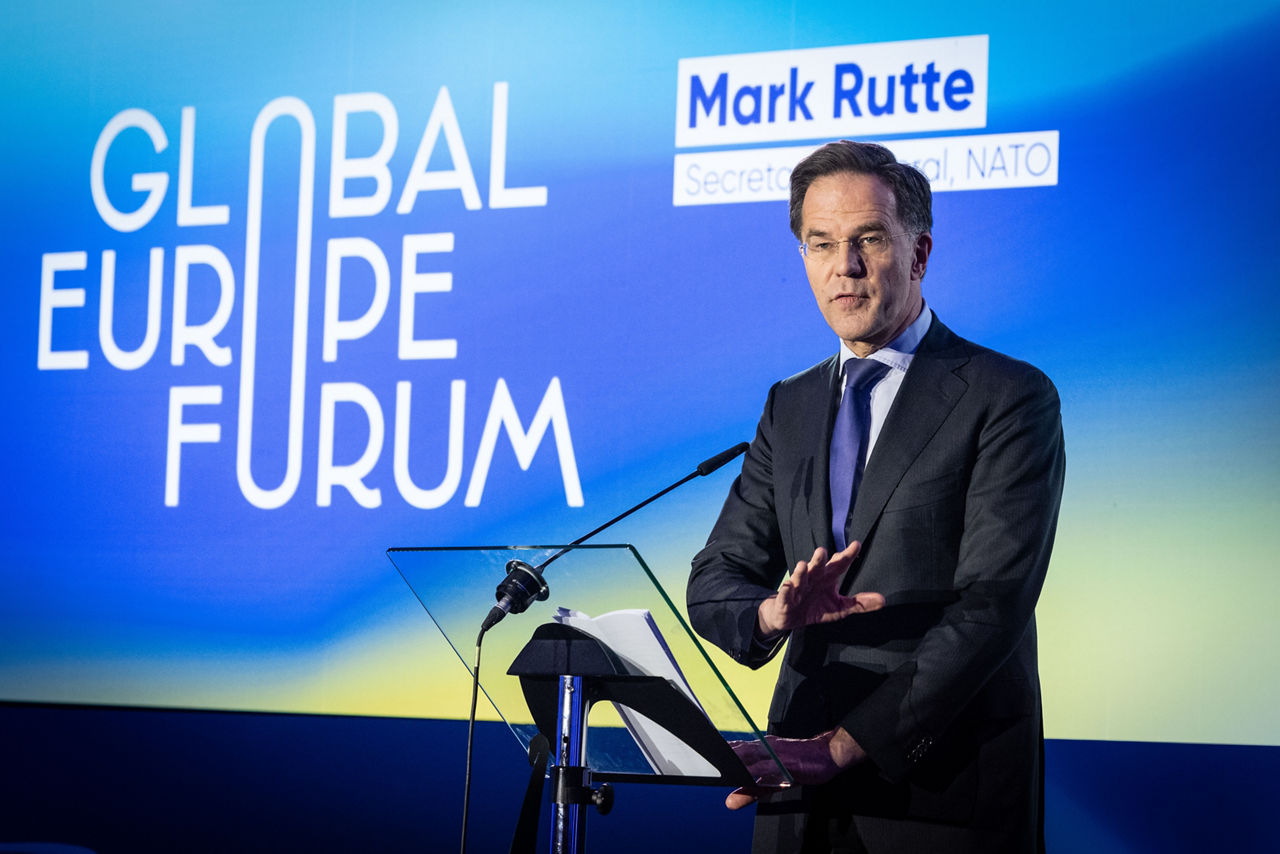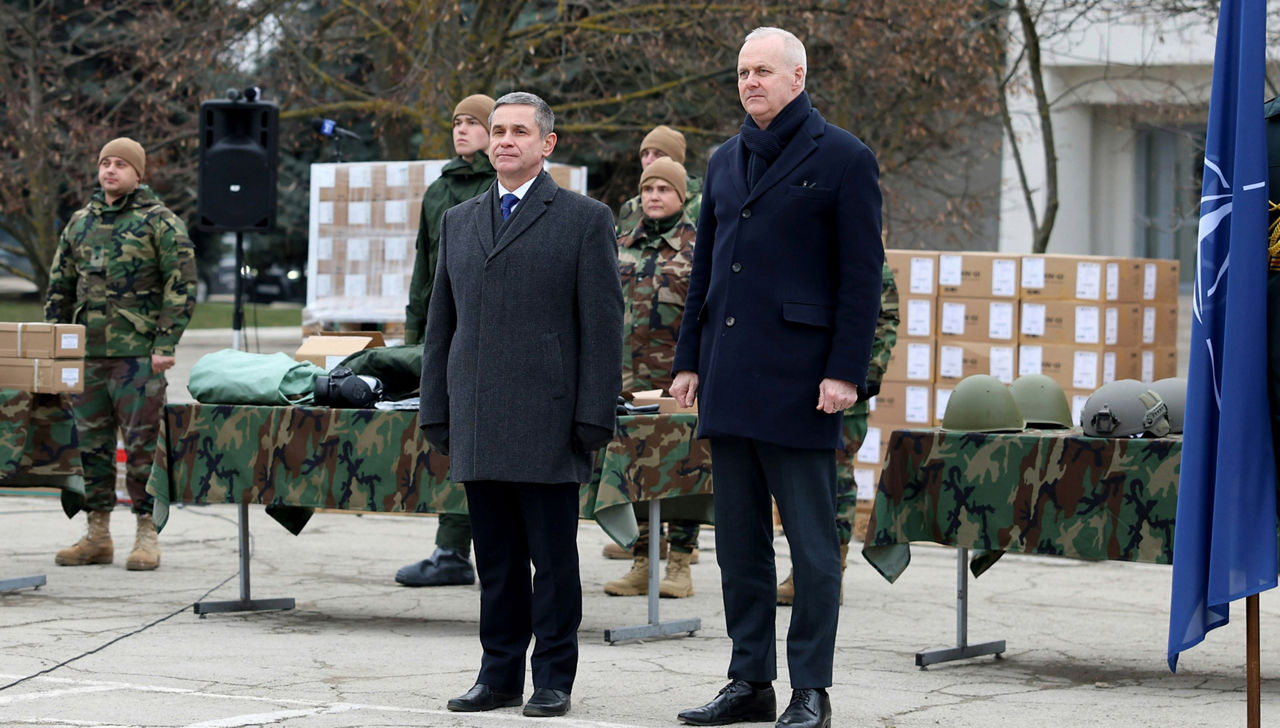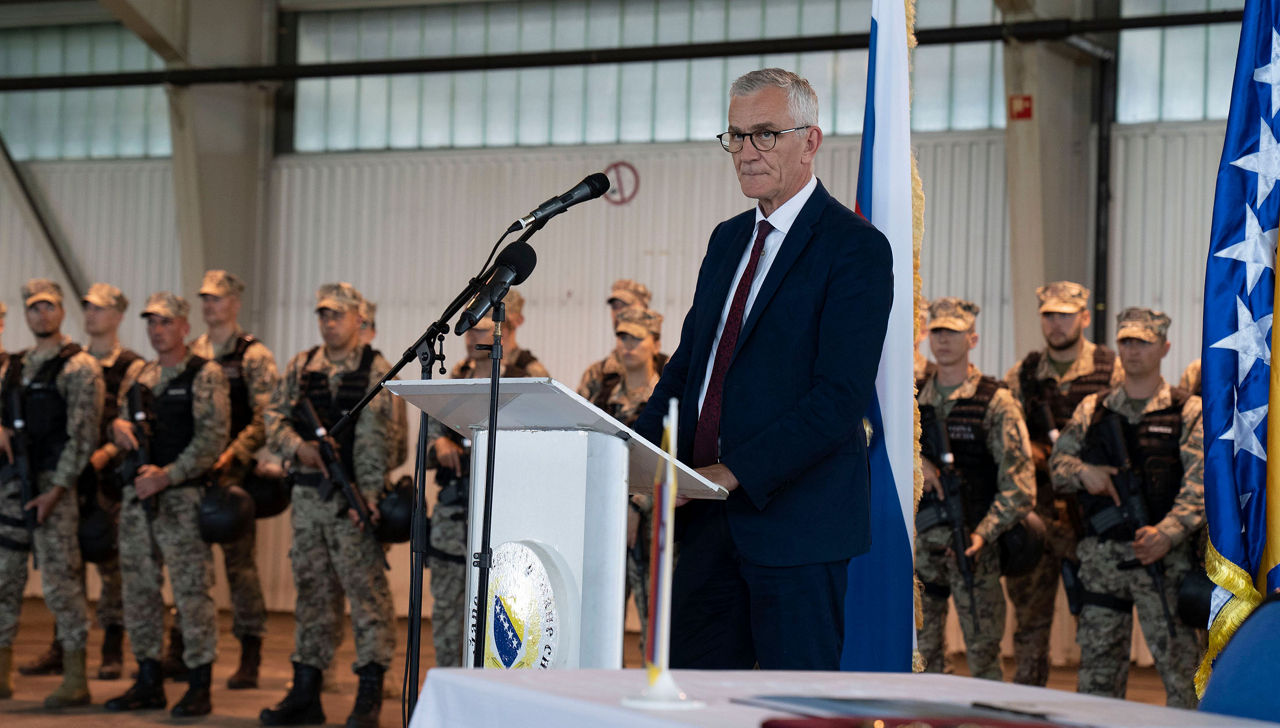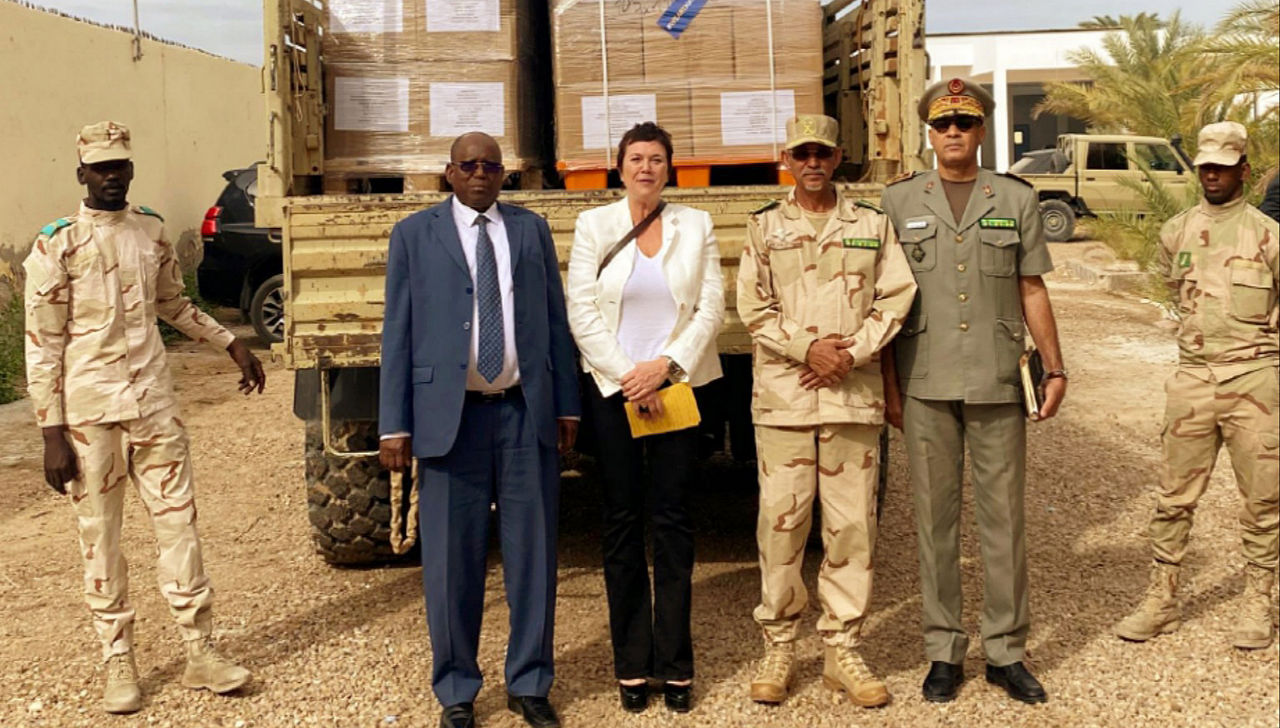Download NATO’s broadcast-quality video content free of charge

Log in
NATO MULTIMEDIA ACCOUNT
Access NATO’s broadcast-quality video content free of charge

Check your inbox and enter verification code
You have successfully created your account
From now on you can download videos from our website
Subscribe to our newsletter
If you would also like to subscribe to the newsletter and receive our latest updates, click on the button below.
Enter the email address you registered with and we will send you a code to reset your password.
Didn't receive a code? Send new Code
The password must be at least 12 characters long, no spaces, include upper/lowercase letters, numbers and symbols.
Your password has been updated
Click the button to return to the page you were on and log in with your new password.
Defence and Related Security Capacity Building Initiative
Updated: 29 May 2024
The Defence and Related Security Capacity Building (DCB) Initiative is a NATO programme that provides strategic advice and practical assistance to partners, helping them build capacity in areas where NATO has expertise. A request-driven process, DCB activities seek to enable the creation of viable, effective and resilient defence institutions in NATO partners. They are tailored to the specific needs of partners; activities can range from strategic-level advice on defence and related security reform and institution-building, to practical assistance on defence capability and local forces development, as well as specific projects in support of these objectives.
- The Defence and Related Security Capacity Building (DCB) Initiative was launched at the 2014 Wales Summit.
- Under the DCB Initiative, NATO cooperates with the following partners: Bosnia and Herzegovina, Georgia, Iraq, Jordan, Mauritania, the Republic of Moldova, Tunisia and the United Nations. The DCB Initiative delivers NATO’s expertise to partners in Eastern Europe and in the South through a responsive and request-driven process. This flexibility is relevant in today’s geo-strategic context.
- At the strategic level, the Initiative delivers advice on security sector reform and institution-building, including national security architecture, policy and defence planning development, and related procedures. At the operational level, the Initiative delivers training and education focused on defence capability and local forces development.
- Individual DCB packages are updated routinely every two years and are implemented with the support of partners and Allies, who both provide advisers and trainers to work with recipient countries.
- Alongside a dedicated DCB Trust Fund established in 2015, new financial resourcing has been made available under the NATO 2030 agenda.
- To support in-country activities, DCB in Iraq is delivered by, with and through NATO Mission Iraq, and liaison offices have been established in Georgia and Moldova. Discussions continue with the Jordanian authorities on the possibility of establishing a NATO Liaison Office in Amman.
The purpose of DCB
Practical cooperation with partners, based on mutual respect and benefit, contributes to enhancing security within the Alliance and promoting stability beyond NATO’s borders. NATO’s cooperation with over 40 partner countries and international organisations is crucial to protect the global commons, enhance resilience and uphold the rules-based international order.
The DCB Initiative reinforces NATO’s relations with partners through a defence and capacity-building prism, supporting the Alliance’s core tasks of crisis prevention and management, and cooperative security. The Initiative builds on NATO’s extensive track record and expertise in supporting, advising, assisting, training and mentoring partners that require capacity-building support. Through DCB, NATO enhances the institutional and defence capabilities of partners with planning and programme activities in the areas of capacity-building, governance and institutions, training and education, and civil emergency response.
Mechanism of the DCB Initiative
Any NATO assistance under the DCB Initiative is provided following a specific request by the recipient country – which is then assessed and considered by the North Atlantic Council, NATO’s principal political decision-making body. The approval of these requests depends on the specific circumstances of each partner and relies on mutual political commitment and local ownership. Once a request is approved, NATO staff cooperate with partner officials to develop a programme of work with specific objectives and timelines. NATO and partner officials maintain regular contact to adjust and update the DCB package based on current needs and conditions.
Cooperation with DCB partners
Since its launch in 2014, the DCB Initiative has been extended, in chronological order, to: Georgia (2014), Jordan (2014), the Republic of Moldova (2015), Iraq (2015), Tunisia (2018), the United Nations (2020), Mauritania (2022) and Bosnia and Herzegovina (2022).
Bosnia and Herzegovina
Bosnia and Herzegovina and NATO enjoy a long-standing partnership characterised by wide-ranging and mutually beneficial cooperation. NATO seeks to enhance this cooperation and increase its support to Bosnia and Herzegovina, particularly in light of Russia’s full-scale invasion of Ukraine in February 2022 and the changed security environment in Europe. At the 2022 NATO Summit in Madrid, Allies agreed a set of additional political and practical measures to help the country advance its reform efforts and strengthen its resilience, including by developing a new DCB package.
NATO Defence Ministers endorsed the new DCB package for Bosnia and Herzegovina in February 2023. The key areas of cooperation include crisis management; cyber defence; counter-terrorism; aero-medical evacuation; and chemical, biological, radiological and nuclear (CBRN) defence. The implementation of the DCB package for Bosnia and Herzegovina is currently in the initial stages of development and implementation.
Georgia
The Substantial NATO-Georgia Package (SNGP) – the DCB package for Georgia – was agreed at the 2014 Wales Summit and intensified at the 2016 Warsaw Summit. It supports a number of objectives, including enhancing Georgia’s interoperability with NATO and resilience, supporting interagency coordination and interaction, sustaining Georgia’s efforts to contribute to Euro-Atlantic security, and bringing Georgia closer to the Alliance.
After five years of successful implementation, the SNGP was refreshed in 2020 and was further enhanced at the 2023 Vilnius Summit, in response to the changed security environment in Europe and in line with current priorities of both Georgia and the Alliance. The enhanced package strengthens some existing areas of cooperation, such as cyber security and crisis management, as well as introduces two new areas of cooperation, namely training facilities and CBRN defence. The enhanced package continues to encompass multiple domains (air, land, sea and cyberspace) and supports activities at the tactical, operational and strategic levels, including conducting regular joint NATO-Georgia exercises.
Currently, the SNGP spans 17 different initiatives: air defence; aviation; CBRN defence; crisis management; cyber security; the Defence Institution Building School; English language capacity development; intelligence exchange and secure communications; the NATO-Georgia Joint Training and Evaluation Centre; maritime security; military engineering; military medical capability development; military police; Special Operations Forces; standardisation and codification; strategic communications; and training facilities.
The SNGP is currently supported by all Allies and some partner countries, who all together provide nearly 50 experts, resident or frequently travelling to Georgia. A four-person core team in Tbilisi coordinates the implementation of the package. Among recent successes, in spring 2023, NATO delivered six vehicles for the Georgian Military Police with special equipment for fast response.
Iraq
The DCB package for Iraq was agreed in July 2015 following a request from the Iraqi Prime Minister. Based on this request and Allies’ decisions at the 2016 Warsaw Summit, training and capacity-building activities were transferred inside Iraq with a renewed emphasis on a “train-the-trainer” approach.
Responding to a request from the government of Iraq for additional support in its efforts to stabilise the country and fight terrorism, Allies decided again to intensify the level of support for Iraq by launching the non-combat advisory and capacity-building NATO Mission Iraq (NMI), at the 2018 Brussels Summit.
NMI is the main vehicle through which the DCB Initiative is implemented in Iraq. The DCB package for Iraq encompasses seven priority areas of assistance: security sector reform; countering improvised explosive devices (C-IED); explosive ordnance disposal and demining; civil-military planning support to operations; cyber defence; military medicine and medical assistance; military training; and civil emergency planning and preparedness.
Building on the previous capacity-building activities, NMI provides valuable day-to-day advice and support primarily across the Ministry of Defence directorates. For instance, the Ministry established a NATO Codification Bureau to enhance Iraqi Armed Forces’ logistics. Through NMI, the Alliance also advises professional military education institutions to help Iraq develop these entities, as well as national security structures, more effectively.
Jordan
The DCB assistance for Jordan builds upon the already extensive level of cooperation between NATO and Jordan through various partnership tools. The initial DCB package was agreed at the 2014 Wales Summit and revised in 2017 and 2021, addressing the evolving security needs of Jordan. Discussions continue with the Jordanian authorities on the possibility of establishing a NATO Liaison Office in Amman.
The DCB package currently encompasses the initiatives of border security, building integrity, civil preparedness and crisis management, C-IED, cyber defence, English language capacity development, information protection and security, logistics systems, military exercises, personnel management, and Special Operations Forces.
Allies also agreed to enhance the counter-terrorism dimension of the DCB package with the inclusion of the following areas: strategic-level counter-terrorism training and education, small arms and light weapons, strategic communications, and terrorists’ misuse of the Internet.
The support provided by NATO has produced tangible improvements. On 2021, a new Military Women’s Training Centre opened, increasing the role of servicewomen to more active and operational positions within the Jordanian Armed Forces (JAF). NATO has been assisting the Jordanian National Centre for Security and Crisis Management in achieving full operational capability. The Centre was pivotal to successfully coordinating Jordan’s whole-of-government response to fighting the COVID-19 pandemic, making use of the plans, procedures and tools introduced with NATO assistance.
The military exercises area of the DCB package have improved interoperability between NATO and the JAF, allowing Jordan to successfully host the NATO Regional Exercise 2017 (REGEX 2017), the first NATO exercise held in a Mediterranean Dialogue country. Likewise, through NATO DCB, Jordan has become more resilient to cyber threats, for instance, through the establishment of a national Cyber Emergency Response Team (CERT), or through the relevant technical infrastructure installed in the JAF to serve for the protection of all government networks. Additionally, around 500 Jordanian cyber defence experts and policy makers have been provided with training or attended awareness courses at the tactical, operational and strategic levels.
Mauritania
Mauritania has been a committed partner of NATO since joining the Mediterranean Dialogue in 1995. Following a request from the Mauritanian authorities in March 2022, Allied Heads of State and Government extended a DCB package to Mauritania at the July 2022 NATO Summit in Madrid. This reflects NATO’s commitment to enhancing capacity-building in the South.
The DCB package for Mauritania focuses on six key areas: Special Operations Forces, intelligence, maritime security, stockpile management and small arms and light weapons, military career transition programme, and military education.
In addition to strengthening Mauritania’s defence and security capacities, the DCB package for Mauritania also offers a platform for NATO to contribute to broader efforts to maintain regional stability in the Sahel.
Republic of Moldova
Following the commitment made at the 2014 Wales Summit, the DCB package for the Republic of Moldova was launched in June 2015. At the 2022 Madrid Summit, in response to the changed security environment in Europe, Allies agreed a package of tailored support measures with the aim of strengthening Moldova’s resilience and developing its security and defence capabilities. As a result, NATO Defence Ministers endorsed an enhanced DCB package for Moldova in February 2023.
The enhanced DCB package builds upon Moldova’s ongoing engagement with NATO’s Building Integrity programme to develop defence sector institutions. Similarly, it builds upon NATO’s first DCB package, where NATO advised and assisted with the establishment of a national defence strategy, a military strategy and a force structure for the country. NATO also provided DCB support in the implementation of United Nations Security Council Resolution 1325 on Women, Peace and Security.
The enhanced DCB package addresses additional requirements identified by Moldova, adding new areas of work as part of a whole-of-government approach. Within the new package, NATO is supporting Moldova in various areas, including strategic planning; human resource management; building integrity; professional development of civilian personnel; non-commissioned officers (NCO) corps development; standardization of training and logistics; defence resource management; ammunition physical security and stockpile management; civil emergency planning and preparedness; defence against CBRN threats; C-IED; cyber security; strategic communications; and development of the Moldovan Carabinieri.
Thanks to Moldova’s DCB package, two projects were funded and executed recently. In April 2024, in the area of military medicine, NATO provided first-aid kits to the Moldovan Armed Forces. In the cooperation area of NCO corps development, NATO delivered essential equipment for the Moldovan NCO Training Centre at the Armed Forces Military Academy in 2023. Beyond physical deliveries, NATO continues to provide advice in a number of cooperation areas mentioned above.
The assistance that NATO provides to Moldova is based on concrete requests for support expressed by the Moldovan authorities and is in full respect of the country’s constitutional neutrality.
Tunisia
In response to Tunisia’s request, Allies approved the DCB package for Tunisia at the 2018 Brussels Summit. NATO Heads of State and Government endorsed an update of the DCB package for Tunisia at the 2022 Madrid Summit, expanding NATO’s assistance to the partner country from the original seven initiatives to eleven. The updated DCB package for Tunisia aims to help further develop Tunisia’s defence capacities, foster interoperability with NATO and support the transformation of the Tunisian Armed Forces. It also reflects NATO’s commitment to enhancing capacity-building in the South.
The updated DCB package for Tunisia is designed to enhance defence capacities in the areas of cyber defence; C-IED; CBRN defence; promoting transparency in resource management; fostering interoperability with NATO; Women, Peace and Security; and supporting the disposal of obsolete ammunition. NATO capacity-building also promotes the interoperability of selected army, navy and air force units of the Tunisian Armed Forces.
The implementation of the updated DCB package also encompasses education and training activities and the exchange of expertise and best practices, in line with NATO standards. The DCB package for Tunisia is further supported by NATO’s Science for Peace and Security Programme in the areas of C-IED and CBRN defence, as well as in the areas related to education and training from the DCB Trust Fund projects.
United Nations
In April 2020, NATO Foreign Ministers endorsed the DCB Package for United Nations (UN) Peacekeeping Training. This DCB package aims to strengthen the capacity of the UN to mount and sustain peacekeeping operations by enhancing the operational performance, safety and security of UN Peacekeepers.
The package encompasses four areas: military performance evaluation, medical care, C-IED, and signals and information and communications technology.
Through the DCB package, NATO experts have delivered C-IED support to UN Troop Contributing Nations and UN Regional Training Centres, thereby reinforcing the United Nations Mine Action Service capabilities. The train-the-trainer approach supports the establishment of UN regional hubs, most notably in Entebbe, Uganda. Within the domains of military performance evaluation, signals and military medicine, NATO experts work collaboratively with UN staff and agencies to develop specialised courses comprising personnel training, assessment and monitoring. Tangible results include a new training qualification for UN military performance evaluators, the creation of a UN medical training toolbox and support for the development of a virtual instructor-led training capability.
DCB Trust Fund
The DCB Trust Fund was established in 2015 to provide financial support and resources to implement the DCB Initiative. The Trust Fund allows Allies and partners to contribute, on a voluntary basis, to the implementation of projects developed in support of the packages. It has proven to be an important enabler to kick-start DCB activities.






